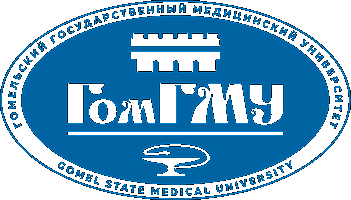Инфекции мочевыводящих путей и микробиота
Citation
Малаева, Е. Г. Инфекции мочевыводящих путей и микробиота / Е. Г. Малаева // Проблемы здоровья и экологии. – 2021. – Т. 18, № 3. – С. 5-14.
Abstract
Инфекции мочевыводящих путей (ИМВП) представляют значительный практический интерес ввиду широкой распространенности, наличия осложнений в виде генерализации инфекции с развитием сепсиса, рецидивирующего течения, негативных последствий для матери и плода у беременных женщин и связанных с интенсивным применением антибактериальных лекарственных средств в виде развития Clostridioides difficile-ассоциированных колитов и антибиотикорезистентности. Подходы к лечению инфекций мочевыводящих путей претерпевают изменения. Если ранее считалось, что моча стерильна и выявление бактериурии приводило к необоснованному назначению антибиотиков, то в
настоящее время внедрение новых методов исследования мочи доказало обратное: бессимптомная бактериурия представляет собой фракцию микробиоты, в норме заселяющую мочевые пути и выполняющую протективную роль. Новые знания привели к пониманию негативного влияния антибактериальных лекарственных средств на состав и видовое разнообразие микроорганизмов мочевыводящих путей, генитального тракта, кишечника, переосмыслению подходов и показаний к их назначению и поиску альтернативных методов лечения пациента путем модификации диеты, назначения пре-, про-, синбиотиков, синтетической микробиоты, вакцин, бактериофагов, трансплантации микробиома. Urinary tract infections (UTIs) are of considerable practical interest due to their high prevalence, presence of complications in the form of generalized infection with the development of sepsis, relapsing course, negative effects on the mother and fetus in pregnant women associated with the intensive use of antibacterial drugs leading to the development of Clostridioides difficile-associated colitis and antibiotic resistance. The approaches to the treatment of urinary tract infections are undergoing changes. If earlier it was believed that urine is sterile and the detection of bacteriuria led to an unjustified prescription of antibiotics, then now the introduction of new methods of urine testing has proved the opposite — asymptomatic bacteriuria is a fraction of the microbiota which normally inhabits the urinary tract and performs a protective role. New knowledge has led to an understanding of the negative impact of antibacterial drugs on the composition and the species diversity of the microorganisms of the urinary tract, genital tract, intestines, rethinking of approaches and indications for their prescription and search for alternative methods of patient treatment by modifying the diet, prescribing pre-, pro-, synbiotics, synthetic microbiota, vaccines, bacteriophages, microbiome transplantation.
Subjects
инфекции мочевыводящих путей
микробиом
микробиота
уробиом
urinary tract infections
microbiome
microbiota
urobiome
Collections
- Том 18, № 3 [24]
